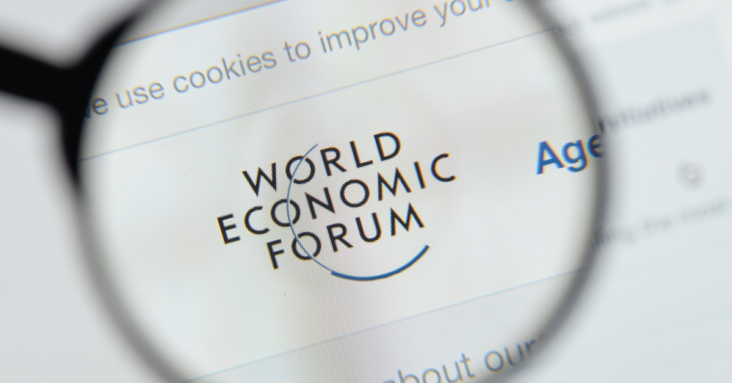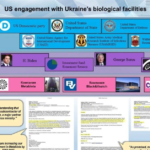
According to the opportunists at the WEF, ‘agile governance’ is the ‘adaptive, human-centred, inclusive and sustainable policy-making, which acknowledges that policy development is no longer limited to governments but rather is an increasingly multistakeholder effort.’
Did you know that the Canadian government quietly signed a Charter agreement with the World Economic Forum (WEF) without parliamentary debate back in November 2020?
That’s right, according to documents acquired by Haldimand—Norfolk MP Leslyn Lewis, while Canadians were immersed in COVID lockdowns and economic uncertainty, the Trudeau government was busy coming to terms with a UN-proposed global regulation and information-sharing agreement with the WEF called the “Agile Nation’s Charter.”
Canada, along with Denmark, Japan, Italy, Singapore, UAE, and the UK, signed on to the globalist agreement two years ago during a panel that was put together by the WEF and the Organisation for Economic Co-operation and Development (OECD).
“The irony is that the Agile Nation’s Charter was signed between our government and the World Economic Forum at the same time that Canadians were complaining about Charter violations within our own country,” stated MP Lewis during a recent video she released about the Charter.
The OECD claims to have collaborated with the WEF in an effort to “look deeper into the interlinkages between regulation and emerging technologies,” and as a result, the Agile Nations Charter “was paved to unlock the potential of emerging tech among countries.” These are emerging technologies that could include digital IDs and digital passport programs.
The WEF has released multiple Global Future Council on the Future of Technology Policy publications referencing the word “agile.”
Their December 2020 “Agile Regulation for the Fourth Industrial Revolution” toolkit states that the Fourth Industrial Revolution “offers the potential to change lives around the world for the better. But to realize this potential, a new approach to governance is needed.”
The wording is reminiscent of when Prime Minister Trudeau stated that the COVID-19 pandemic “provided an opportunity for a reset,” and a “chance to accelerate our pre-pandemic efforts to reimagine economic systems that actually address global challenges like extreme poverty, inequality, and climate change.”
So what exactly is Agile governance then?
According to the opportunists at the WEF, ‘agile governance’ is the “adaptive, human-centred, inclusive and sustainable policy-making, which acknowledges that policy development is no longer limited to governments but rather is an increasingly multistakeholder effort.”
MP Lewis, who has a PhD in international law, says she decided to ask the Canadian government for more information on the “Agile Nations Charter” after she started seeing the Charter and term “agile” being referenced in government documents without being adequately defined.
The MP says she was shocked at what was then disclosed in the Order Paper Response she received from the Canadian government about the WEF Charter.
“The government had a leading role in the development of this Charter and its signing in November 2020, yet not even a press release was put out to inform the public of this WEF partnership,” Lewis wrote in a statement she released about the Charter on January 28.
Despite Canadians being led to believe the project was on hold, Transport Canada recently confirmed that the country is still working with the WEF on the “Known Traveller Digital Identity” pilot project (KTDI), which could potentially lead to citizens requiring a digital ID to travel.
It seems less than surprising then that Canada has also quietly taken the lead on the Agile Nations “Digital Credentials and Digital Trust Services” project.
Once again, Canadians including MP Lewis, who have been dismissed as “conspiracy theorists” by state-backed media for raising concerns about how the actions of foreign global hubs like the WEF or World Health Organization (WHO) could threaten our nation’s sovereignty, have been vindicated.



